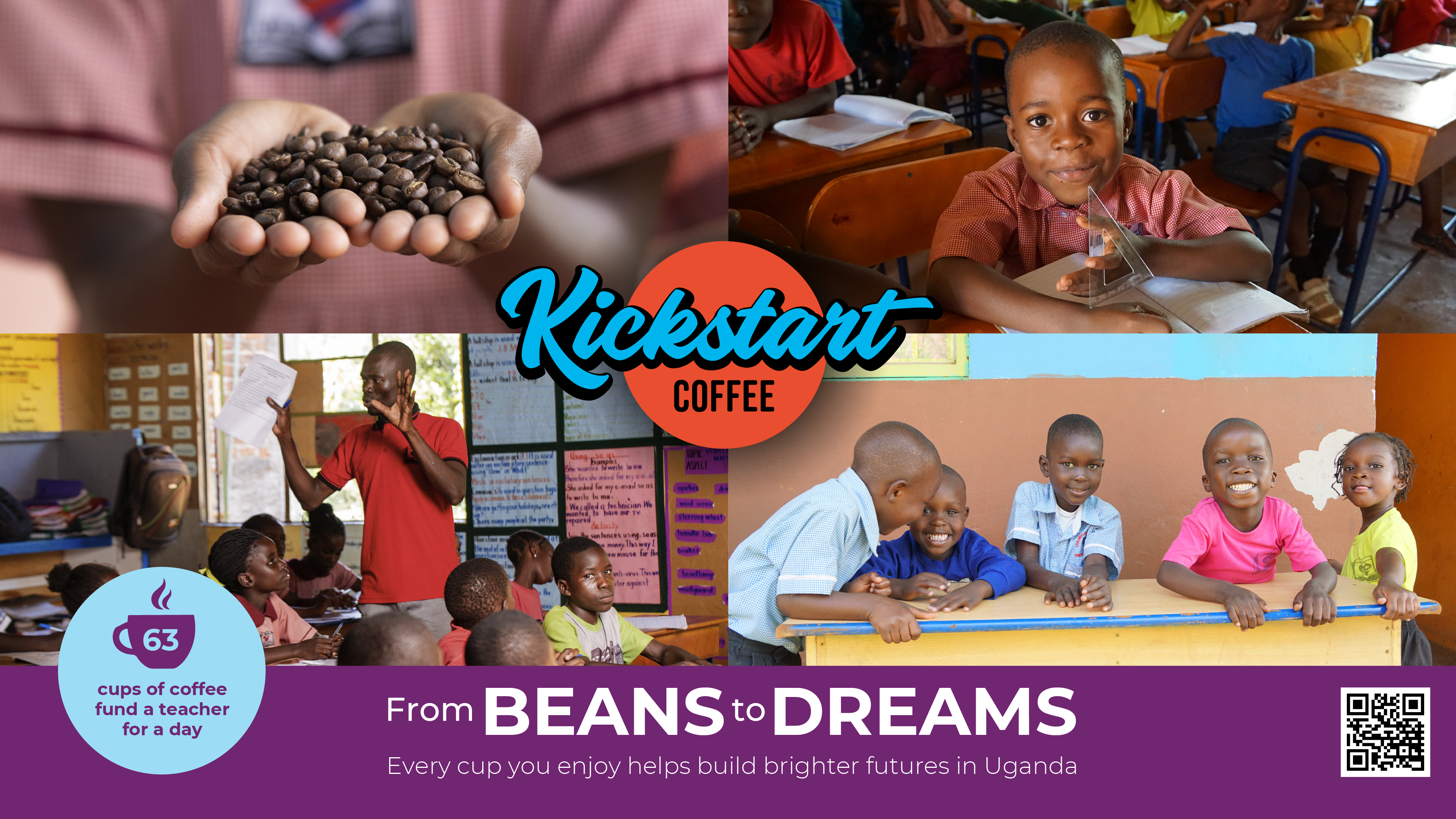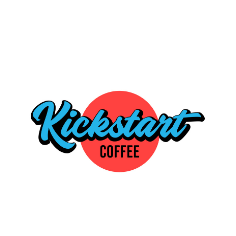

Kickstart Coffee

1.6
Cambridgeshire, United Kingdom
November 2025
Beverages
Manufacturing
Uganda,
United Kingdom
Kickstart Coffee CIC Coffee with Impact. Every Bean Counts. Kickstart Coffee is a UK-based, female-founded social enterprise using speciality coffee to create lasting change in Uganda. We source directly from smallholder farmers on Mt Elgon and reinvest 100% of our profits into community-led projects that support education, nutrition, healthcare, and sustainable farming. Each bag of Kickstart Coffee funds a teacher for a day. So far, our impact includes: 470 children in school 42 staff employed 19,000 school meals served each month 1 million cups of coffee delivered 28,000 trees planted Our work focuses on two key communities: Children from low-income families, ensuring access to quality education and daily meals Coffee farming families, supported through fair pricing, training, and long-term partnerships We proudly align with the UN Sustainable Development Goals and operate with transparency, sustainability, and dignity at the heart of everything we do. From beans to dreams — this is coffee that changes lives.
Overall B Impact Score
Governance 18.2
Governance evaluates a company's overall mission, engagement around its social/environmental impact, ethics, and transparency. This section also evaluates the ability of a company to protect their mission and formally consider stakeholders in decision making through their corporate structure (e.g. benefit corporation) or corporate governing documents.
What is this? A company with an Impact Business Model is intentionally designed to create a specific positive outcome for one of its stakeholders - such as workers, community, environment, or customers.
Workers 6.2
Workers evaluates a company’s contributions to its employees’ financial security, health & safety, wellness, career development, and engagement & satisfaction. In addition, this section recognizes business models designed to benefit workers, such as companies that are at least 40% owned by non-executive employees and those that have workforce development programs to support individuals with barriers to employment.
Community 77.4
Community evaluates a company’s engagement with and impact on the communities in which it operates, hires from, and sources from. Topics include diversity, equity & inclusion, economic impact, civic engagement, charitable giving, and supply chain management. In addition, this section recognizes business models that are designed to address specific community-oriented problems, such as poverty alleviation through fair trade sourcing or distribution via microenterprises, producer cooperative models, locally focused economic development, and formal charitable giving commitments.
What is this? A company with an Impact Business Model is intentionally designed to create a specific positive outcome for one of its stakeholders - such as workers, community, environment, or customers.
Environment 15.6
Environment evaluates a company’s overall environmental management practices as well as its impact on the air, climate, water, land, and biodiversity. This includes the direct impact of a company’s operations and, when applicable its supply chain and distribution channels. This section also recognizes companies with environmentally innovative production processes and those that sell products or services that have a positive environmental impact. Some examples might include products and services that create renewable energy, reduce consumption or waste, conserve land or wildlife, provide less toxic alternatives to the market, or educate people about environmental problems.
Customers 3.6
Customers evaluates a company’s stewardship of its customers through the quality of its products and services, ethical marketing, data privacy and security, and feedback channels. In addition, this section recognizes products or services that are designed to address a particular social problem for or through its customers, such as health or educational products, arts & media products, serving underserved customers/clients, and services that improve the social impact of other businesses or organizations.